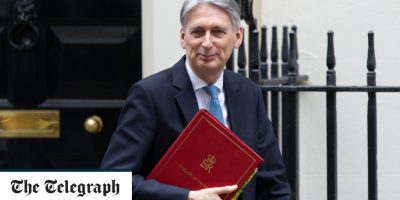Safely growing your savings is becoming harder than ever. As the cost of living is forecast to rise, experts are warning savers to rethink how they manage their money to save their cash from “inflation erosion”.
Household cash savings rose by £7bn in July, by £11.7bn in June and by an average of £19.1bn between March and May, when the lockdown was at its tightest. Over the same period, average interest rates fell each month.
Subsequent cuts by the Bank of England have pushed down the official rate to 0.1pc – the lowest on record. The average easy-access cash saver account now pays 0.2pc, less than half the 0.5pc available at the start of the pandemic.
The best deals seemingly vanish as quickly as they appear. Last week Coventry Building Society quietly reduced the interest rate on its “best-buy” easy-access account from 1.2pc to 1.1pc 48 hours after launch. The previous week Skipton Building Society withdrew its 1.2pc “best-buy” deal after three days, leaving savers 60 hours to open an account.
Savers’ most trusted provider, state-backed NS&I, made savage cuts last week, slashing of the interest rate on its market-beating 1.16pc Income Bonds to 0.01pc from November. Almost 200,000 people hold Income Bonds, worth a total of £22bn.
Anna Bowes of Savings Champion, a comparison service, said with more people looking for the best deals, banks were quickly able to attract the money they needed before cutting rates and relying on inertia to keep customers.
“There will be a wall of cash from NS&I bond holders looking for a better rate, with potentially billions up for grabs – so the pace of change among the top deals is only going to intensify,” she said.
Inflation is forecast to reach 2pc in 2021. Today, no savings account is able to beat that figure. So is it worth changing the way you save, or even paying someone to help you keep on top of the best deals?
The City watchdog, the Financial Conduct Authority, says savers lose out on billions of pounds in interest through inertia. Research published by the FCA in January suggested that just one in 10 cash savers had switched to a new deal in the past three years.
There are now a handful of firms that make a business out of helping savers to stay on top of the best rates – and some of them are free.
Hargreaves Lansdown’s Active Savings service and rival Raisin are both online savings account supermarkets. The idea is that you log in to one central hub, where you can shop around among a number of providers for the best deal. Those with larger amounts can spread their savings across accounts to ensure they do not exceed the £85,000 limit for FSCS protection.
These services allow you to avoid setting up a new account each time you want to switch. They are free, as the providers make their money by charging the banks they deal with. Hargreaves charges its banks up to 0.25pc. It has 66,000 customers with £2.2bn in savings.
Raisin says it has more than 270,000 customers and the rate it charges the bank varies according to how much you deposit and the type of deal. When your deal matures it notifies you so that you can switch. Hargreaves said the average rate on an easy-access savings account on its site was 0.4pc – double the 0.2pc market average.
But the problem with both is that they exclude large parts of the market and typically go into partnership with smaller banks. Hargreaves has 13, while Raisin has 97. The risk is that savers miss out on the best deals.
Flagstone, a Wealth firm, offers a similar service with more familiar high street names as partners, but charges a fee and also excludes many deals. It is designed for wealthy individuals, charities and trusts looking after millions and for whom seemingly tiny differences in interest rates make a huge difference.
You need £250,000 to open an account and there is a £500 set-up fee, although the firm has tie-ups with wealth managers including St James’s Place and Tilney, whose customers can open accounts with £50,000. There is an ongoing charge of up to 0.25pc. The charge drops the more savings you have.
Ms Bowes said it would almost always be cheaper to search yourself, but warned savers to be wary of the proliferation of rogue websites. It is also hard to determine what is truly a good deal, she added.
Savings Champion has a “concierge” service that will scour the whole market to find you the best deal. But with minimum fees of £1,850 plus tax, it is only really an option for the wealthiest.
Have you managed to beat the savings slump? Do you have a complex spreadsheet set up to make the most of the best deals? We want to know – write to harry.brennan@Finance.co.uk
























Comments